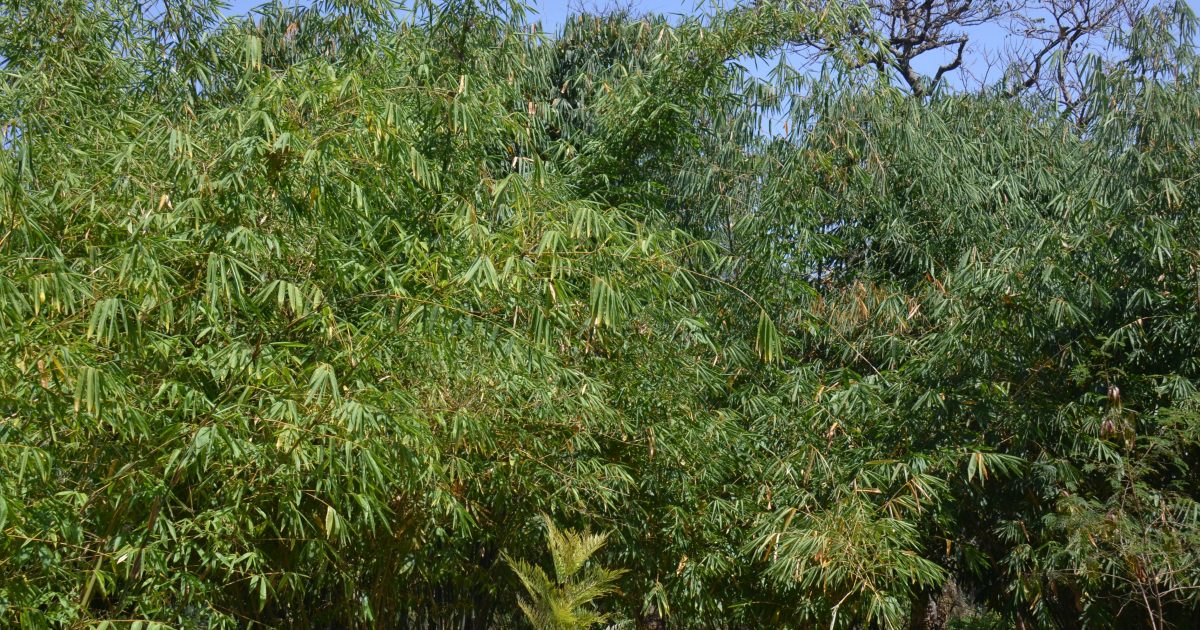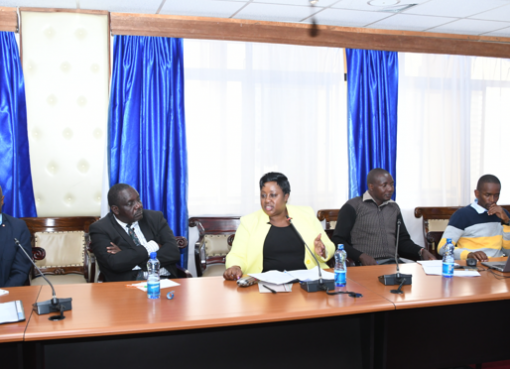Bamboo, a giant woody grass which is grown predominantly in the tropics, for the longest time has been harvested and its products used to make various items, including beauty artifacts.

The crop was made a cash crop in 2020 by the President. The aim was to foster the commercialization of bamboo while at the same time promote bamboo as part of Kenya’s Greening Campaign, with the objective of increasing tree cover and generating more employment through agroforestry.
Mrs. Beryn Otieno, the Assistant Regional Director, Kenya Forestry Research Institute (KEFRI) Migori says that bamboo can be used in making construction materials, furniture, handicrafts, bioenergy products, stick-based products including house tiles, chairs and tables, mats, and household utensils.
Otieno said that KEFRI has been working with various organisations and groups through training and support to ensure that bamboo farmers in Migori get the commercial value from bamboo products.
One such group is the Odeka Group based in Nyatike Sub County. KEFRI has assisted the group through training on how to make various products from bamboo.
The forestry officer noted that the President made bamboo a cash crop because of its enormous benefits that are geared towards fulfilling the Big Four Agenda. She said that bamboo as a cash crop is fulfilling the Big Four Agenda that include food security, manufacturing, affordable housing and affordable health care.
Otieno acknowledged that bamboos are a good source of protein both for humans and animals and still they can be sold by farmers for commercial gain. Bamboos are also known to make good houses and shelter both for livestock and humans and have medicinal value. She noted that all these benefits fit perfectly in the Big Four Agenda. She encouraged Migori farmers to embrace the cash crop in order to make good earnings.
Mr. Fred Awiti, a bamboo farmer and the Chair of Odeka Group from Nyatike Sub County said that the Group benefited from the training and support they got from KEFRI. Odeka Group makes household products from bamboo.
He acknowledged that the KEFRI training exposed them to numerous products that can be made from bamboo. The Group is now making household items that are sold mainly in Migori and other parts of Nyanza region.
The lack of suitable technologies or comprehensive market analysis are one of the reasons that has prevented an uptake of bamboo industry not only in Kenya but also across the world. Lack of markets is the major problem that Awiti says is hindering their sales.
“Our Customers are few and majority of them complain about our prices as too expensive,” said Awiti.
According to a 2018 resource assessment conducted by the International Bamboo and Rattan Organisation (INBAR), Kenya has 133,000 hectares of bamboo with a potential of increased acreage in order to reach the 10 percent Kenya forest cover. Migori has a forest cover of 0.64 percent that needs to be increased to reach the said target of 10 percent.
Migori County Chief Officer in charge of Environment, Climate Change, Natural Resources and Disaster Management, Ms. Rosemary Otieno acknowledges that Bamboo is an alternative cash crop that should be embraced by Migori residents because of its economic value.
Otieno noted that chairs, rugs and other artifacts can be made from bamboo. She encouraged the residents to plant bamboo in order to increase Migori forest cover that is below 10 percent.
“Migori County was the first county to host bamboo celebrations in Kenya in 2018. We should therefore, be an example to others in ensuring we plant and conserve bamboo,” Otieno stated.
Apart from the beautiful products made out of the crop, Bamboo also ensures rainfall is increased, medicinal values are generated and conservation of rivers is sustained through planting this crop.
This year, Migori Governor Zachary Obado assented to the Climate Change and the Climate Change Fund Bills, which have now become bylaws. The statutes will ensure that the county reaches the 10 percent forest cover.
By Geoffrey Makokha and George Agimba




